Religious D in Aur iv or ersity a
is exhibition showcases the wide variety of faiths and religious experiences of Aurorans. Museum staff interviewed faith leaders, community leaders and congregants in our community. The powerful messages of personal faith, community involvement, relationship building and individual beliefs are told from the words of those most involved with Aurora’s faith community. Learn about other people’s traditions and perspectives, engage with other people and their faiths, and celebrate Aurora’s religious diversity.
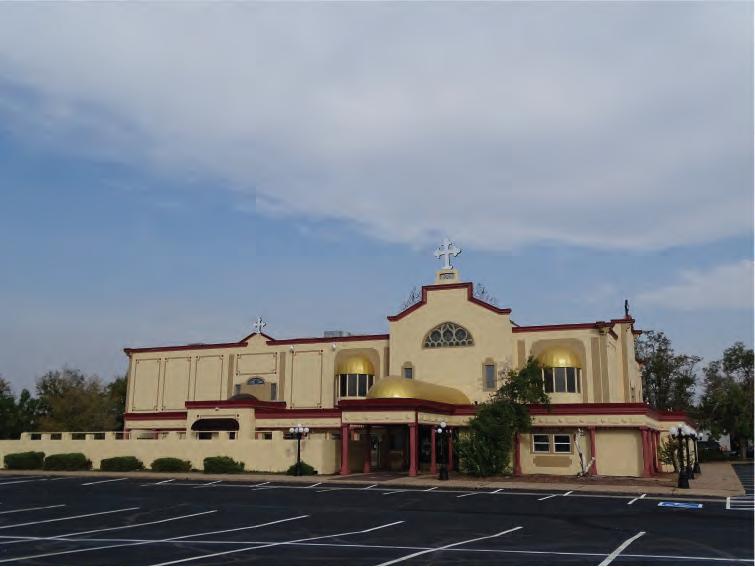
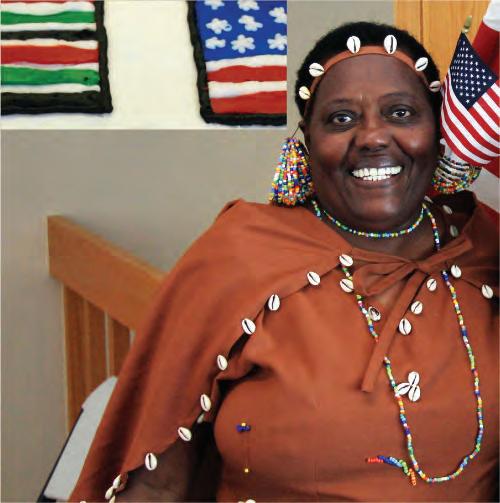

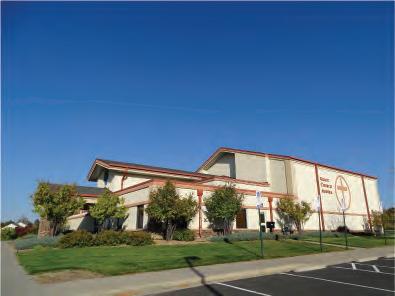
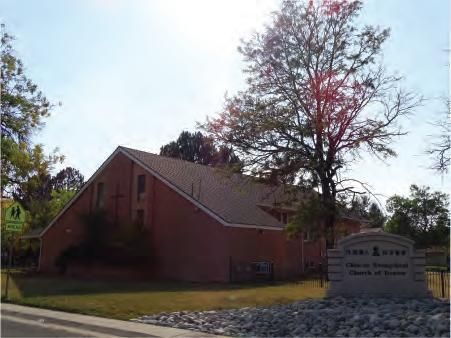
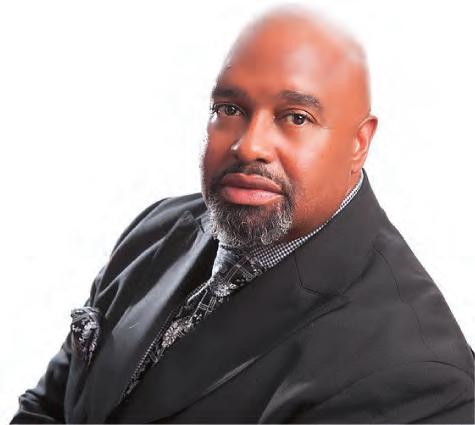
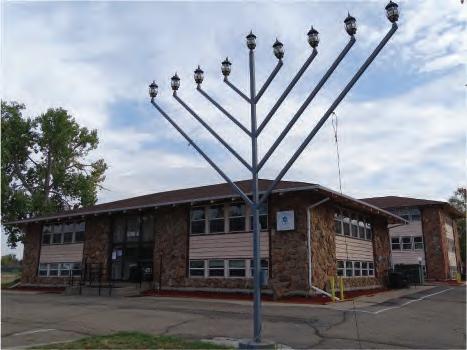
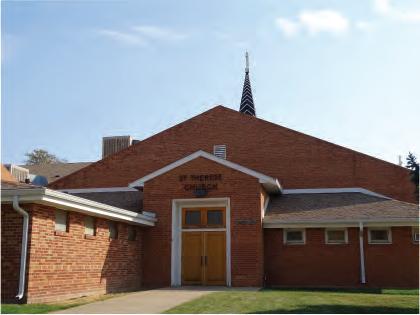
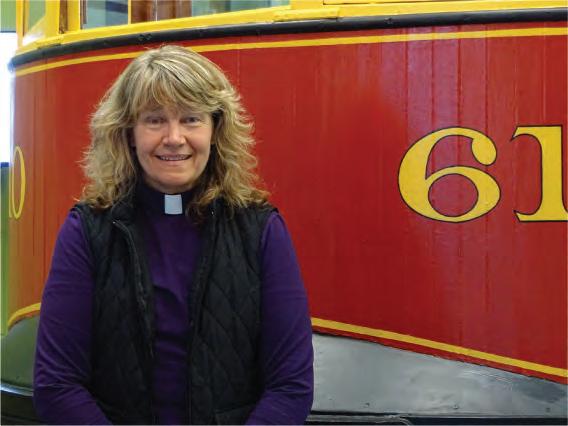
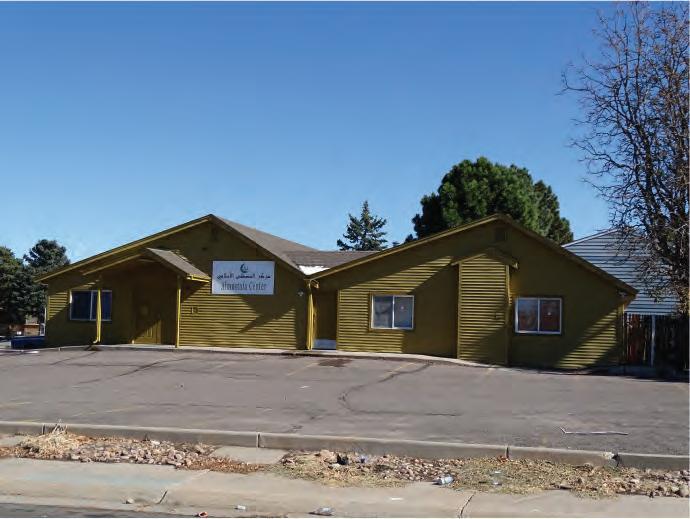
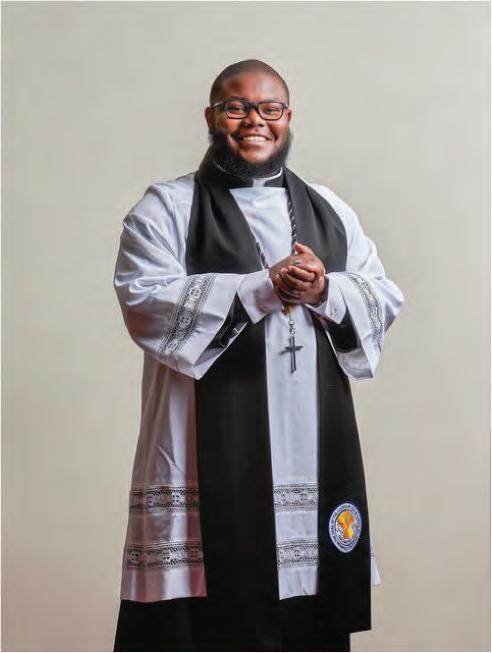
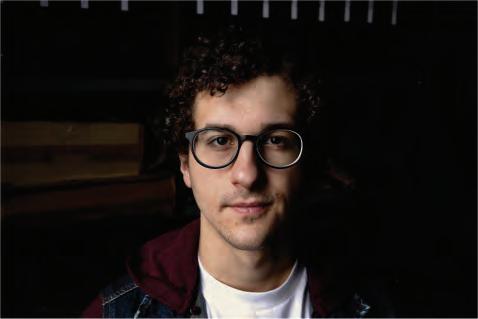
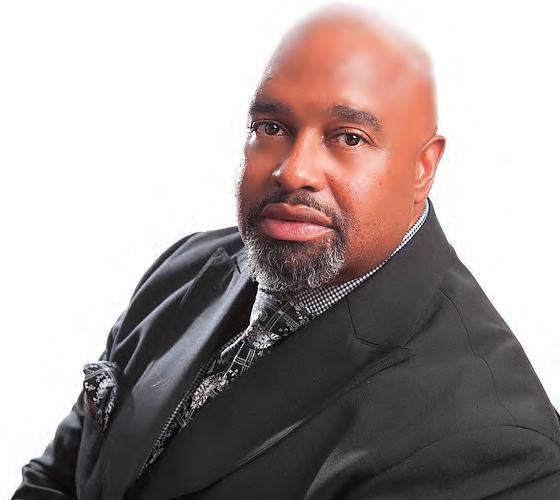
McDonald AJ
AJ McDonald is the Chairman of the Auxiliaries in Ministry at the statewide jurisdictional level of the Church of God in Christ headquartered in Aurora on Chambers. His family has been affiliated with the Church of God in Christ for three generations. His grandfather and father have both served as bishops in the church. McDonald is a lifelong resident of Aurora and a graduate of Overland High School. As a younger man, he earned a bachelor of arts from Hastings College in Nebraska and was an athlete with aspirations of going pro. McDonald stated, “I did know early on that I was going to be a pastor. . . but I kind of ran from it. . . but I couldn’t forever. It was a calling that I could not get away from. . . so when I nally committed and gave my life to the Lord, it was after a very dark period in my life.” McDonald explained that he experienced a powerful moment in which Jesus Christ came to him amid contemplating ending his life. McDonald explained, “He came to me on the cross and looked up to me and said, ‘AJ I did this for you.’ From that moment forward my life has changed. . . I’ve been on this path ever since and have never looked back.” When asked about Aurora’s diverse religious community, McDonald commented, “I know there are other beliefs and other ways to worship, a real mosaic of faiths that are out there that make up this community. I believe that makes this community stronger. Because I believe that most faiths will bring about peace, togetherness and unity. . . I think at the foundation of all the faiths is love. And to me, I think it is God who brings about that love.” McDonald wanted to emphasize his belief that, “All things are possible through God . . . there is nothing impossible. . . so I want people to know, don’t limit yourselves.”

Horen Reverend Anna
Reverend Anna Horen was born and raised in New York City in the Roman Catholic tradition. She attended Fordham University in the Bronx. Later she entered the Graduate Theological Union in Berkeley receiving an MA in Theology with an emphasis in Scripture. For 15 years, Horen ministered in parishes in the San Francisco Bay Area, becoming certified as a Spiritual Director along the way. Over the years, she became unhappy with the Roman Catholic’s stance on the LGBTQ+ community, and the church’s unchanging attitudes towards women. She resigned as Pastoral Associate, and began attending a local Episcopal parish. In 2016, Horen was ordained in the Episcopal Church, and served as associate rector at St. James’ Episcopal Church in Fremont, CA until 2019 when she moved to Colorado and joined the staff at St. Martin in the Fields in Aurora during the pandemic. Horen described St. Martin in the Fields, “ e congregation describes themselves as a family. A family that really cares for one another as well as their community.” She expanded upon her beliefs by stating, “We strive in emphasizing that we are not here for ourselves. e message of Jesus Christ was love your neighbor as you love yourself. . . Jesus did not discriminate among people and his law of love does not make any exceptions. Its love everyone. So consequently we do come together as a faith community and strengthen ourselves not be an exclusive club, but rather to nourish ourselves for the larger mission to world. Which is to spread the good news and love of Jesus Christ.” She continued by saying, “When you look at the bedrock values and historical documents of the all the religions around the world, they are all kind of saying the same thing. . . Sure, we have doctrinal di erences, but when you start looking at what lies beneath those doctrines, it’s all about loving your neighbor.”
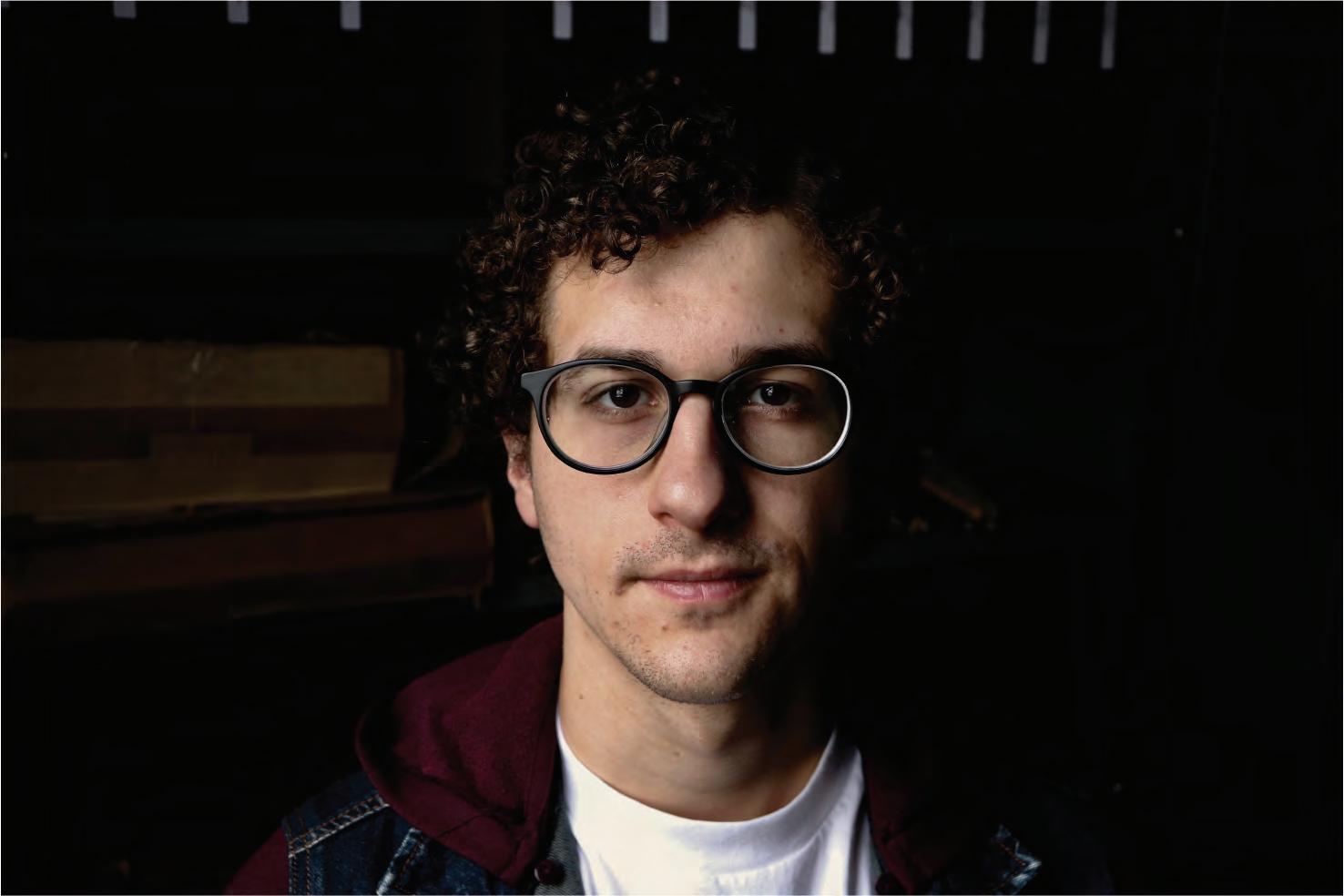
Newby Worship Pastor Christopher
Christopher Newby moved to Aurora in August 2019 to become the Worship Pastor at New Hope Community Church. Before his ministry, Newby received a bachelor’s degree in Music Ministry at Moody Bible Institute in Chicago and is currently working on his master’s degree in Theology at the Denver Seminary in Littleton, Colo. Newby commented on his education, “Faith became something I not only heard about in church, but something I actually began to study. . . Having faith become an academic practice has changed my journey and broadened my horizons.” Newby described his relationship with faith as, “Faith consciously and subconsciously shapes my perspective of the world. . . It is the underlying foundation in my life. It has always been a signi cant aspect.” When reflecting on the role of the church in the city of Aurora, he stated, “I think faith has the ability to bring a community together. In a lot of ways, we focus on the di erences in our faiths, and sometimes let those di erences divide us. I think we can see faith as a common foundation to begin dialog in the community between people who, otherwise, have little in common. . . ese barriers must be broken down to nd the common humanity in others.” When asked about different faiths and practices in Aurora, Newby added, “I think diversity always makes a community stronger. . . When we engage people in other faith communities, it allows us to see the world not just from our own lens, but allows us to really empathize with other people and see the world through others’ eyes.”
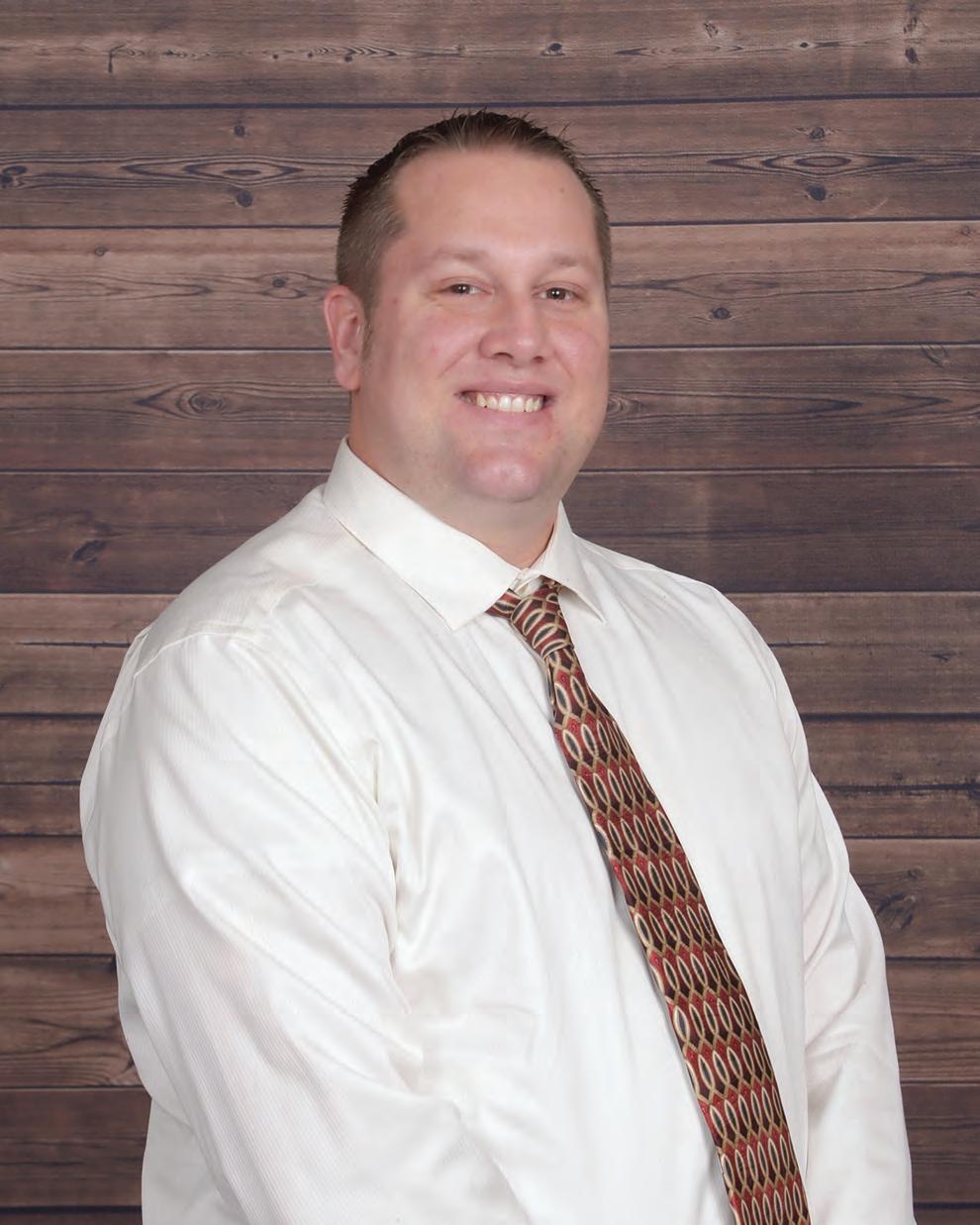
Counts Pastor C. J.
came to the city of Aurora in 2010 and was the founding pastor of Grace of the Lord Church at 6th Avenue and Chambers. Counts started Grace of the Lord in 2018 and describes his church as a community-driven “new plant.” Prior to his ministry, Counts was a nonbeliever and a self-described “opponent of Christianity and atheist.” His journey to becoming a faith leader began with a personal supernatural experience that led him to his ministry, and ultimately to the foundation of Grace of the Lord. His church congregation is made up of an extremely diverse population. He stated his first congregant saved was a homeless man living outside his church. Counts remarks, “Our church is casual and unconventional . . . A real ragtag bunch of people, certainly not full of statues and saints . . . people from all di erent ethnic and economic backgrounds attend . . . I look out from my pulpit and rarely see faces that look like mine. . . no matter our di erences, the best thing we got going for us, is that we all love the Lord.” Grace of the Lord, according to Counts, is a “church family.” He explained that, “. . . some people say our church is all they have in regard to family. . . ere is a real closeness between us, and we are always looking to add people to that family. . . It really creates a sense of belonging. It’s something that is healthy and helps grow you as an individual. It’s rooted in a value system that really transcends this world.”
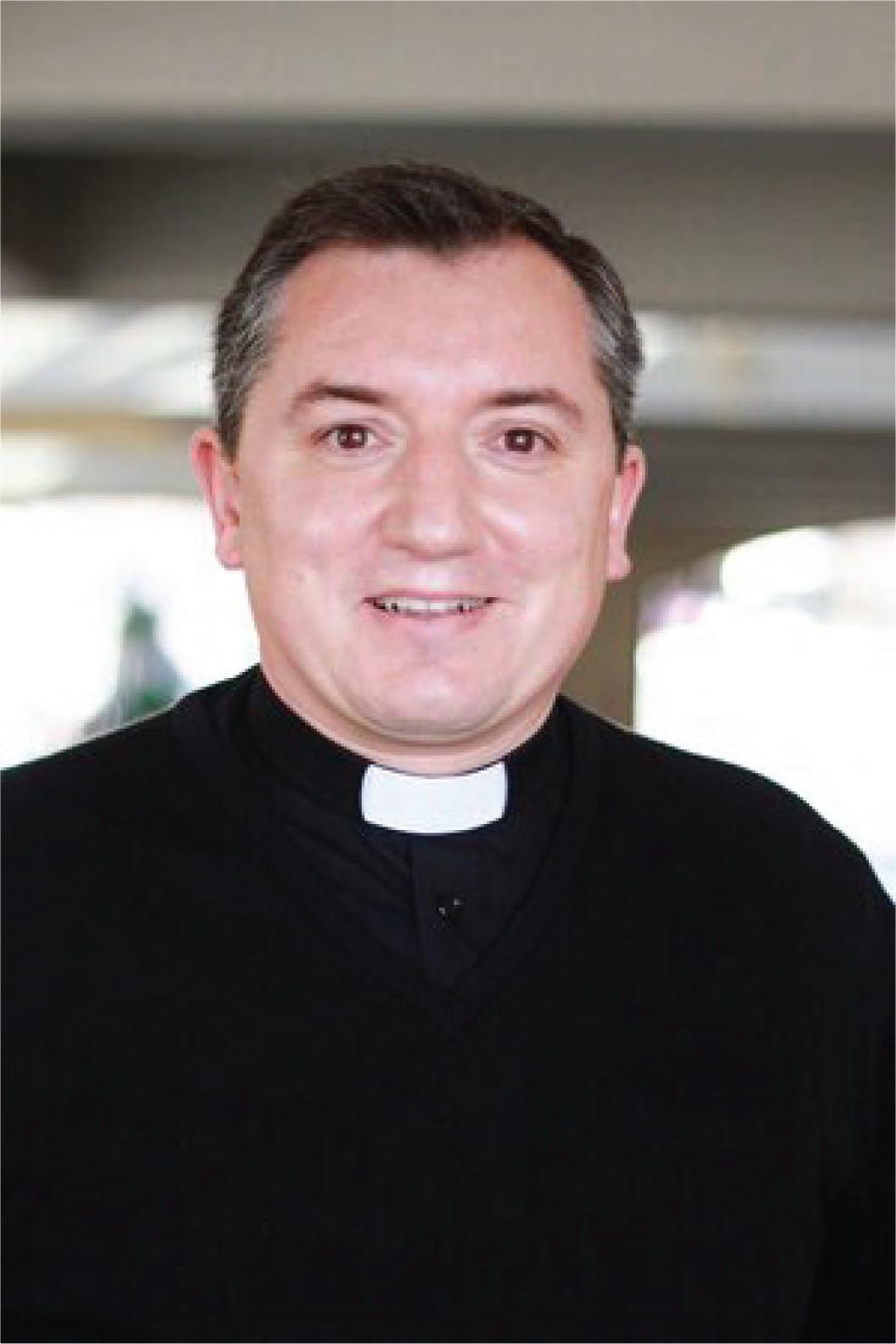
Medina-Algaba Felix P. Father
Father Felix has been the pastor at Queen of Peace Catholic Church in Aurora since June 2013. Felix grew up in Spain and came to Colorado in 1996 where he studied at seminary in Denver. Prior to becoming a religious leader, Felix studied mathematics in Spain. He was ordained in 2004 and his first ministry was at Risen Christ Catholic Church in Denver. When asked about his first impressions of Queen of Peace Catholic Church in Aurora, Felix commented, “I was told by someone that I would be going to the United Nations of our Archdiocese. I did not know what that meant. . . When I came here I realized what they meant. People from every walk of life, from countries all over the world, people speaking almost every language, every race and demographic were here. . . ere are challenges in a church made up of such di erent people . . . but many of the challenges are also blessings. e blessings are that we need to love more. e blessing is that we cannot sit comfortably in our ways, traditions and cultural backgrounds. . . Every day you nd people inviting you to forget about yourself and be for others. at is the greatest blessing that we have here. We see God’s miracle when that happens.”
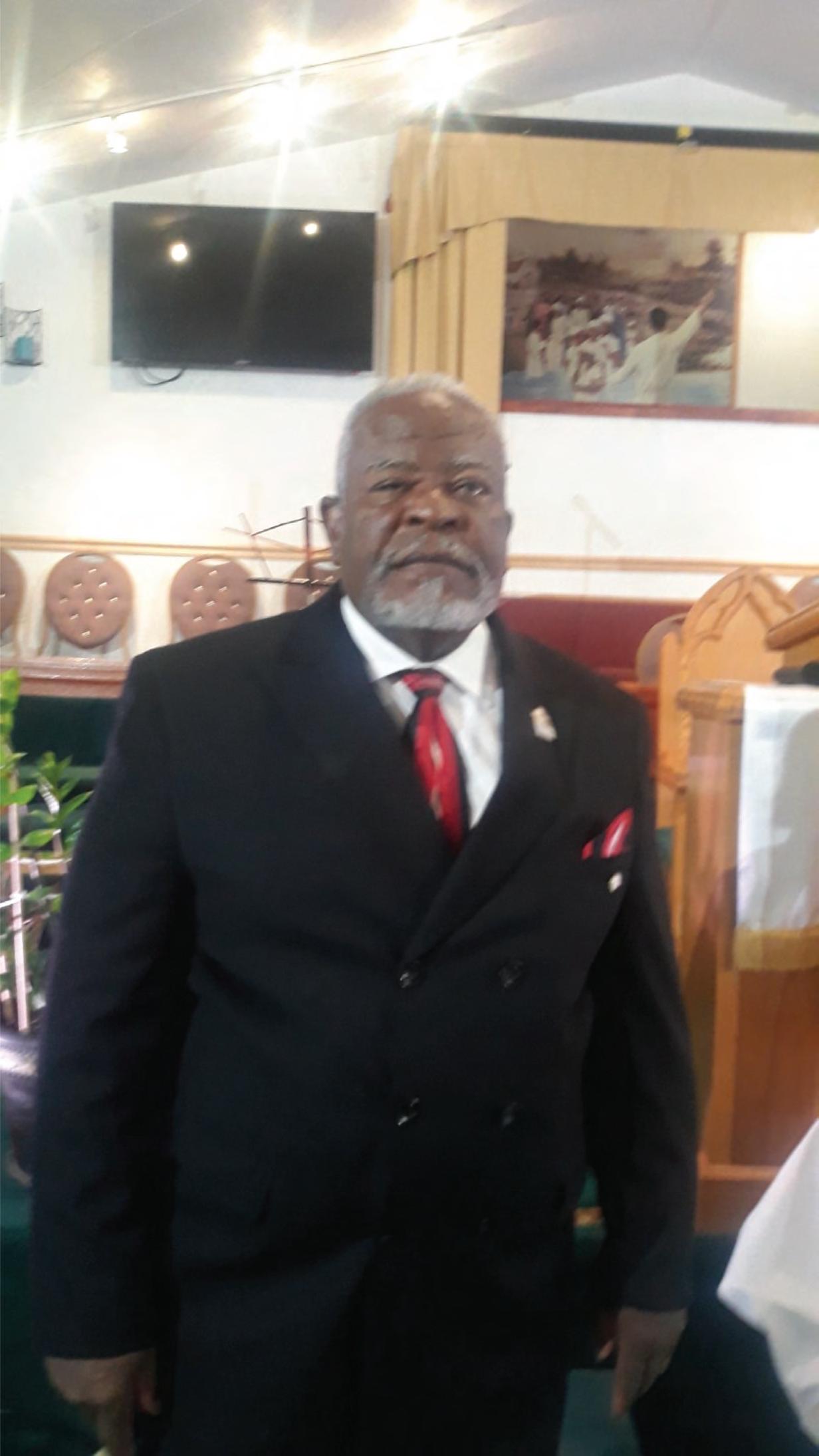
Swazer Pastor Hardy
is the second serving pastor at Morning Star Baptist Church in north Aurora, beginning in 1994. Swazer played an instrumental role in designing and building Morning Star’s current church location. Prior to the construction of the current church, the congregation gathered in an Aurora home. As a younger man, he volunteered in prison ministries at Englewood Federal Correctional Institution in Littleton, Colo. for over 17 I was the rst one to ever baptize in the facility. . . We were having people come and accept the Lord, but while they were in prison they couldn’t be baptized. . . So, I went to the Chaplin and told him I need to baptize these folks. He said the only the place available was a large bathtub in the prison hospital facility. . . So, my rst baptism at FCI Englewood was in a bathtub, and we did that for quite a few years.” Swazer also shared his perspective on the importance of church, “ e importance of the church assembling itself is that you have fellowship, and people to walk with. . . When you’re not walking by yourself, you can gain strength from seeing somebody else . . . they can encourage you. It’s very important, as far as I am concerned, for people to assemble themselves in church. . . ere is something powerful about the gathering of the church and having the church be there for you and everybody else.” Additionally, Swazer wanted to share, “I think the people should know, I am not here because I sought to be here. I am here because I believe God placed me here. . . I was never looking to be a preacher in the rst place. . . I came here [Morning Star Baptist Church] to help out. . . I came over and preached once on a Sunday. e following Sunday I came back as Pastor-elect. . . I believe God placed me here.”
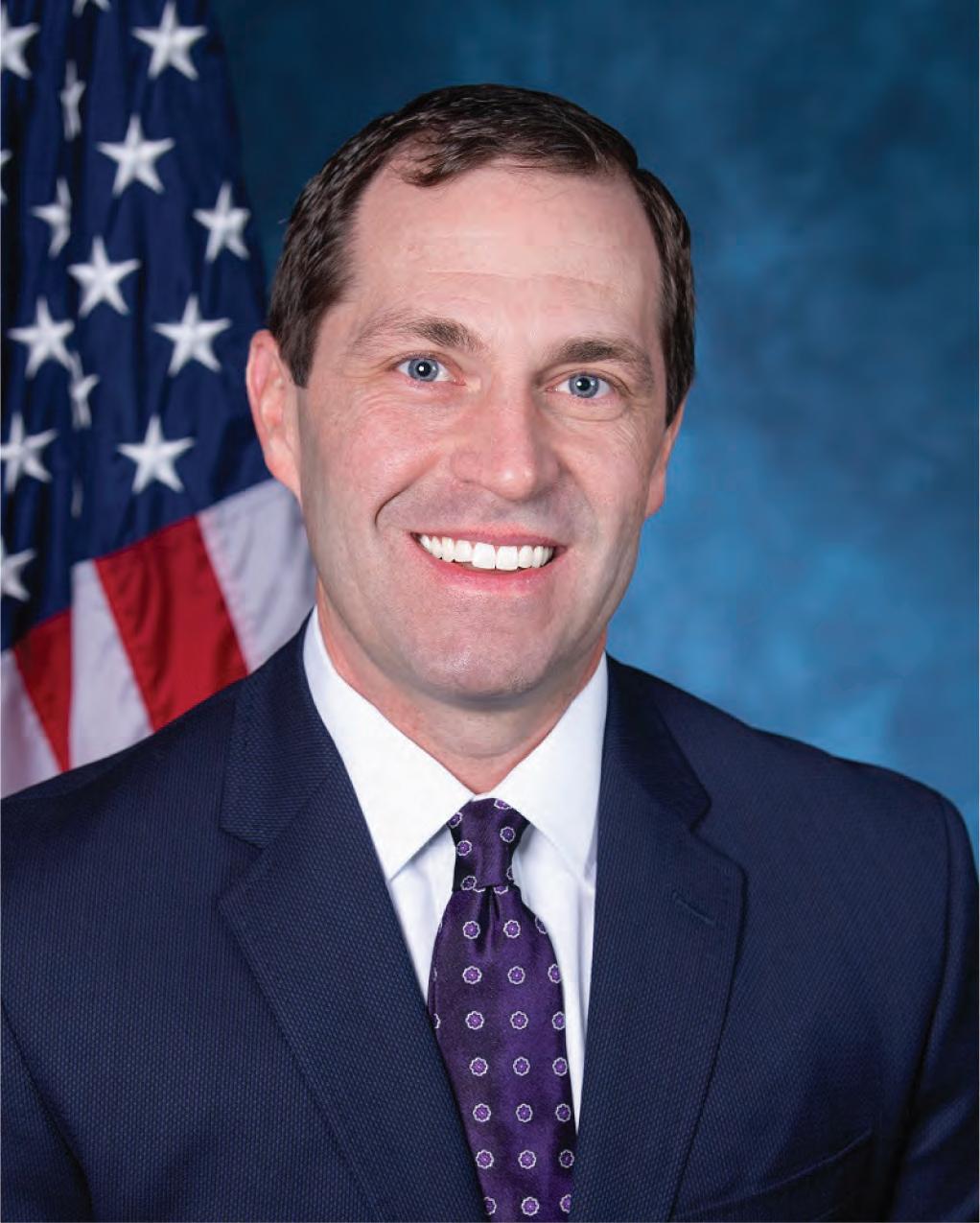
Jason Crow Congressman
A former Army Ranger and lawyer, Congressman Jason Crow represents Colorado’s Sixth Congressional District, encompassing Aurora and parts of Adams and Douglas Counties. While in the Army, Congressman Crow served our country in Iraq and Afghanistan. He was raised in a Catholic family and he describes his faith a personal journey. Reflecting, Congressman Crow said, “ e Catholic Church was a huge part of my life growing up. It was part of our family ritual. Every Sunday morning, I knew what I was doing. . . It really was the support network that was instrumental in my life growing up.”
When asked about Aurora’s diverse religious population, Congressman Crow commented, “As a member of Congress, as someone representing one of the most diverse districts in the nation . . . I have become increasingly interested in how all the di erent faith traditions share commonality. And how that commonality can bring us together.” Congressman Crow continued, “We still have con ict and things we have to address, but our community commonly comes together in a remarkably positive way. . . A part of that is the strength of the faith traditions and that shared commonality. ings you nd in faith traditions like helping out the less fortunate, the idea of welcoming the stranger and the refugee, the idea of service and good acts, these are things you nd across traditions and you see playout every day in our community. . . I think it’s important we support one another and our respective faith journeys. Because to everyone that can be unique, and I am big believer that faith is a very personal thing. No one person’s faith journey is the same as another. But we should be supportive of each other as we all walk that individual path.”
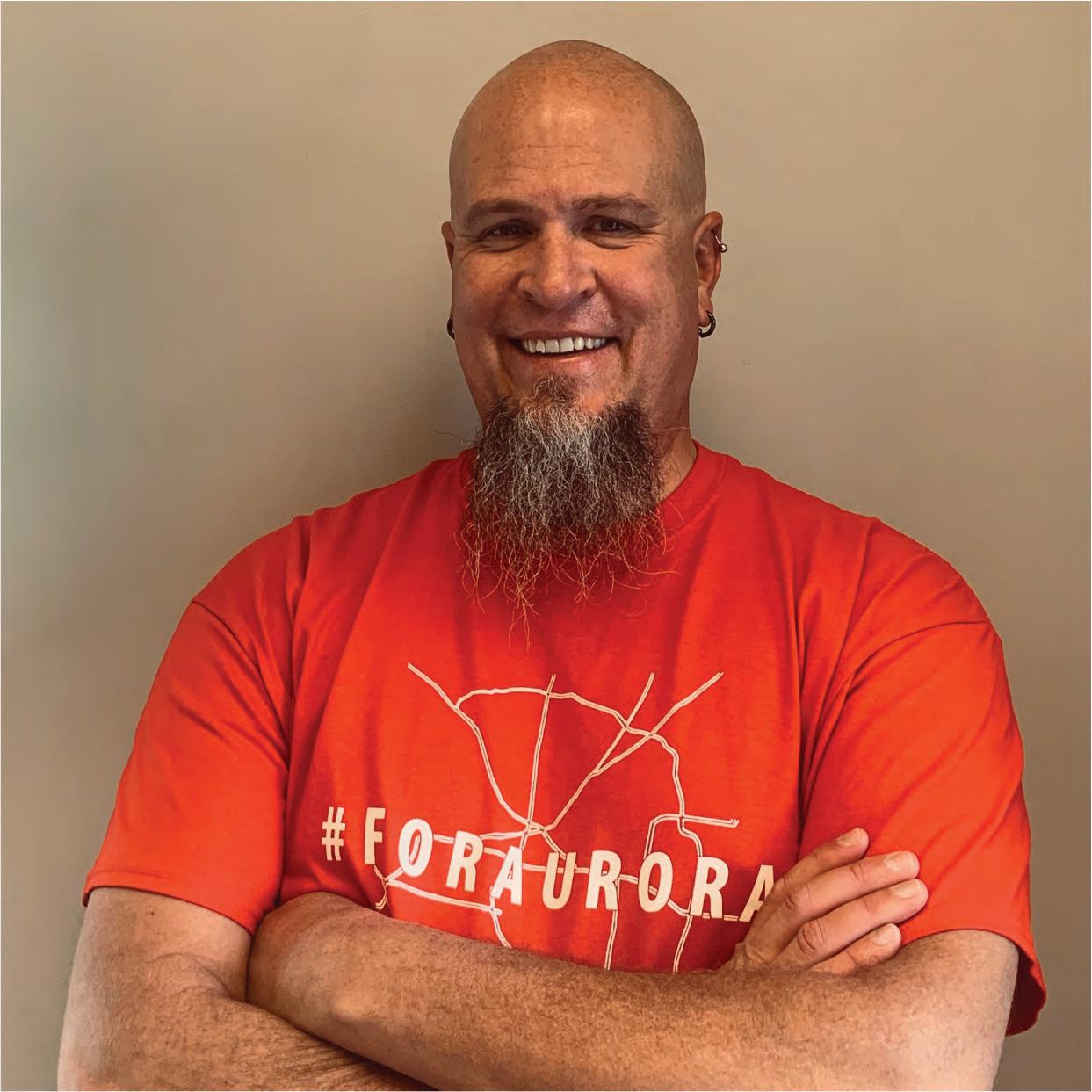
Hommes Pastor Kendal
Pastor Kendal Hommes is the Reach Out Pastor at Eastern Hills Community Church in southern Aurora. Hommes has been on staff at Eastern Hills for the past 19 years, serving as a youth minister for most of his tenure. As a teenager he attended youth group at Eastern Hills, and his wife’s parents were founding members of the church. Hommes explained that he wanted to be a pastor like his father from a young age, “Even when I was like 5 years old, I used to put my stu ed animals on the couch as a congregation and used a plant stand as a lectern and preach to my stu ed animals.” Hommes explained that it was his passion for youth ministry that was a driving force that led him to be a pastor. “In youth ministry . . . you’re trying to meet kids where they are at. . . As you’re trying to teach a message, that message is going to be a little di erent to an adult as it is to a middle school student. . . you want those messages and conversations to be age appropriate.” In addition to his work with kids, Hommes emphasized how important the community was to him and his congregants. “ is is my passion at Eastern Hills. We tell people, ‘I want people to be the best neighbors that their neighbors have ever had.’ I want people to think about, ‘How do I make my community better?’ . . . Our involvement in the community is not just, ‘Hey here we are as a church, if you need us, you can come here.’ Instead, here we are as a whole bunch of people that live in the community asking, ‘How can we help you? How can we improve your experience of just being neighbors with us?’”
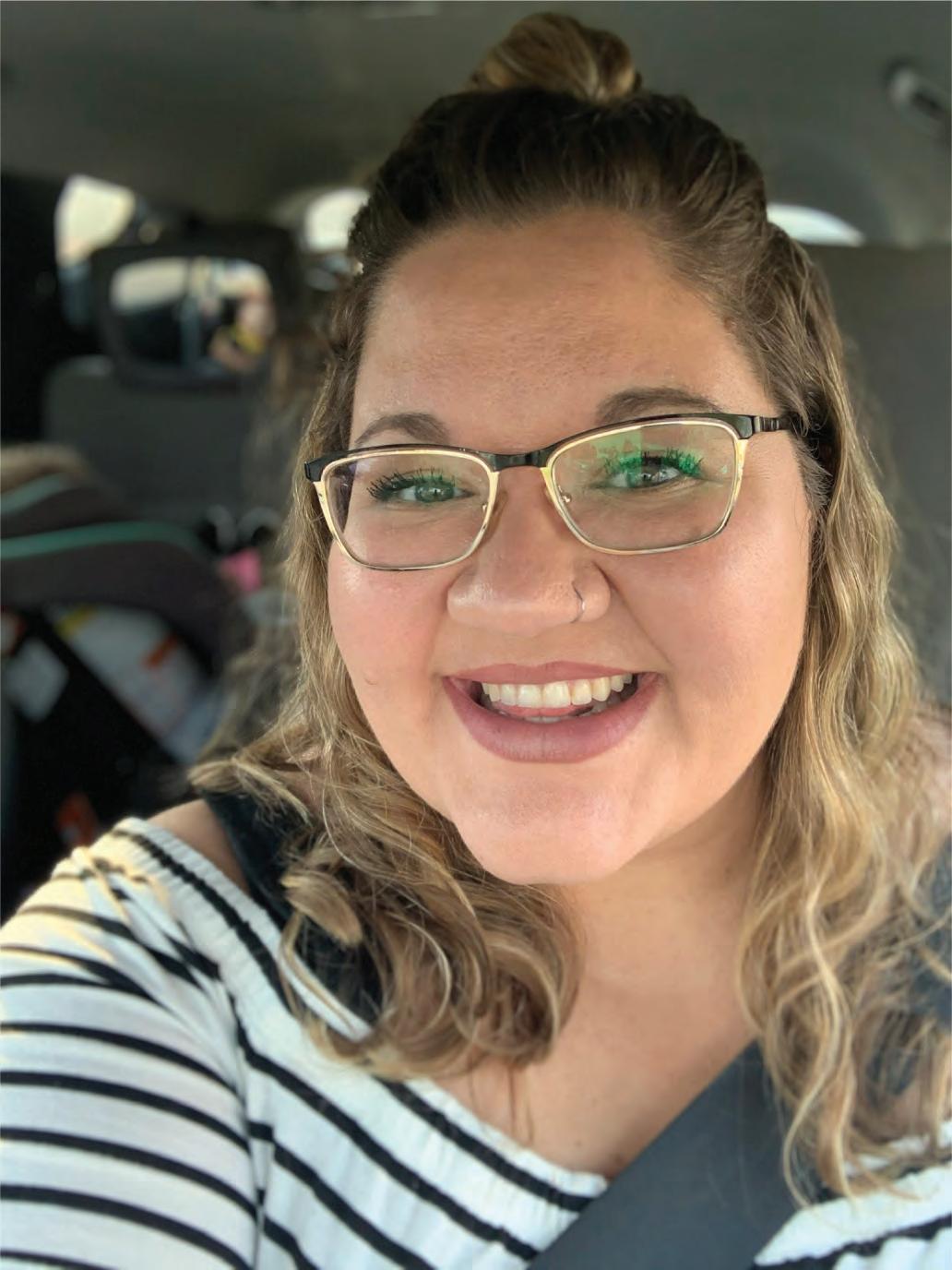
Nordstrom-Kemp Kinna Youth Minister
Kinna Nordstrom-Kemp is the Director of Youth and Family Ministry at St. Mark’s Lutheran Church in the Del Mar neighborhood in Aurora. She grew up in Arizona before studying at Luther Seminary in Saint Paul, Minnesota. She earned a MA in Children, Youth and Family Ministry and moved to Aurora in 2014. Describing her ministry at St. Mark’s, Nordstrom-Kemp said, “It’s a ministry for our community that is ecumenical. So, it’s not just Lutherans, not just Episcopalians, it’s for anyone who wants to be a part of it. We call ourselves OHANA Youth Ministry, OHANA meaning family . . . we say it doesn’t matter where you’re from, your race, your gender, your sexual orientation, none of that matters – everyone is welcome here. And you have to be welcoming to everyone else.” She continued, “Now as a youth minister I completely want to o er a space for these kids to know that no question is o the table. . . I’m going to preach what I believe from my compassion and from my heart. I want them to understand that they may ask a question, and I might not know the answer to that – and that is okay because that is part of faith. . . It’s pretty rare we don’t have a Sunday we don’t talk about racism. We talk about identity. . . we talk about what makes us unique and di erent . . . and that’s not a bad thing. at is a part of who you are as a person. But it does not de ne your worth. at is the problem we see a lot. Society nding worth with black skin, brown skin, or not being a native English speaker. I love to preach about how you are worthy just as you are. You don’t have to do anything to deserve God’s love, grace and forgiveness.”
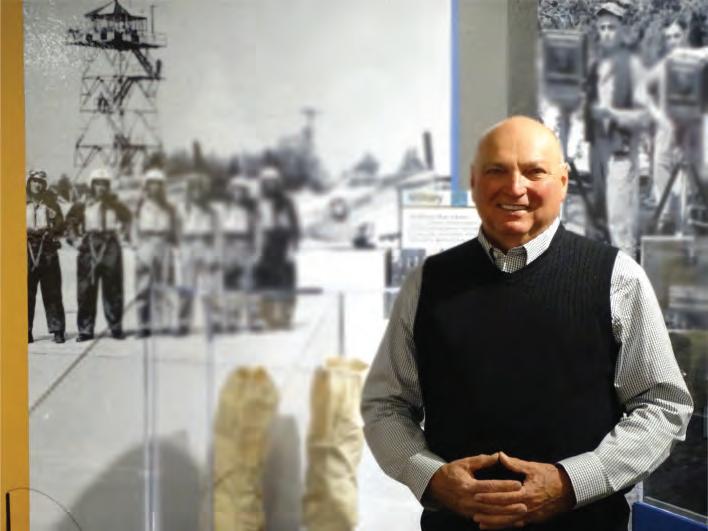
Sittig Lawrence “Bud”
Bud Sittig is a lifetime Lutheran and has attended Lord of the Hills Lutheran Church in Aurora for the past 11 years. He grew up in eastern South Dakota and was baptized and confirmed in the Lutheran Church. Sittig has been a pilot throughout his life. He previously served as president and COO of California Pacific Airways, was also VP of Operations at Skybus Airlines and director of Flight Safety at Delta Airlines. Sittig has served in the United States Air Force and Colorado Air National Guard. He served as the Commander of the 120th Fighter Squadron out of Buckley Air Force Base. Sittig retired from the Air Force with the rank of General and is currently a representative of the FAA. When talking about his faith, Sittig stated, “ e community and relationships in faith have been extremely important to me in my life. . . My career has been broad and expansive, yet throughout my life I have found faith groups. In the military and in aviation, it was comforting to nd others who share with you in faith. . . I believe spirituality is a big deal in the military. . . especially in a wartime environment. e old adage of ‘there are no atheists in a foxhole,’ there is a fair amount of truth to that.”

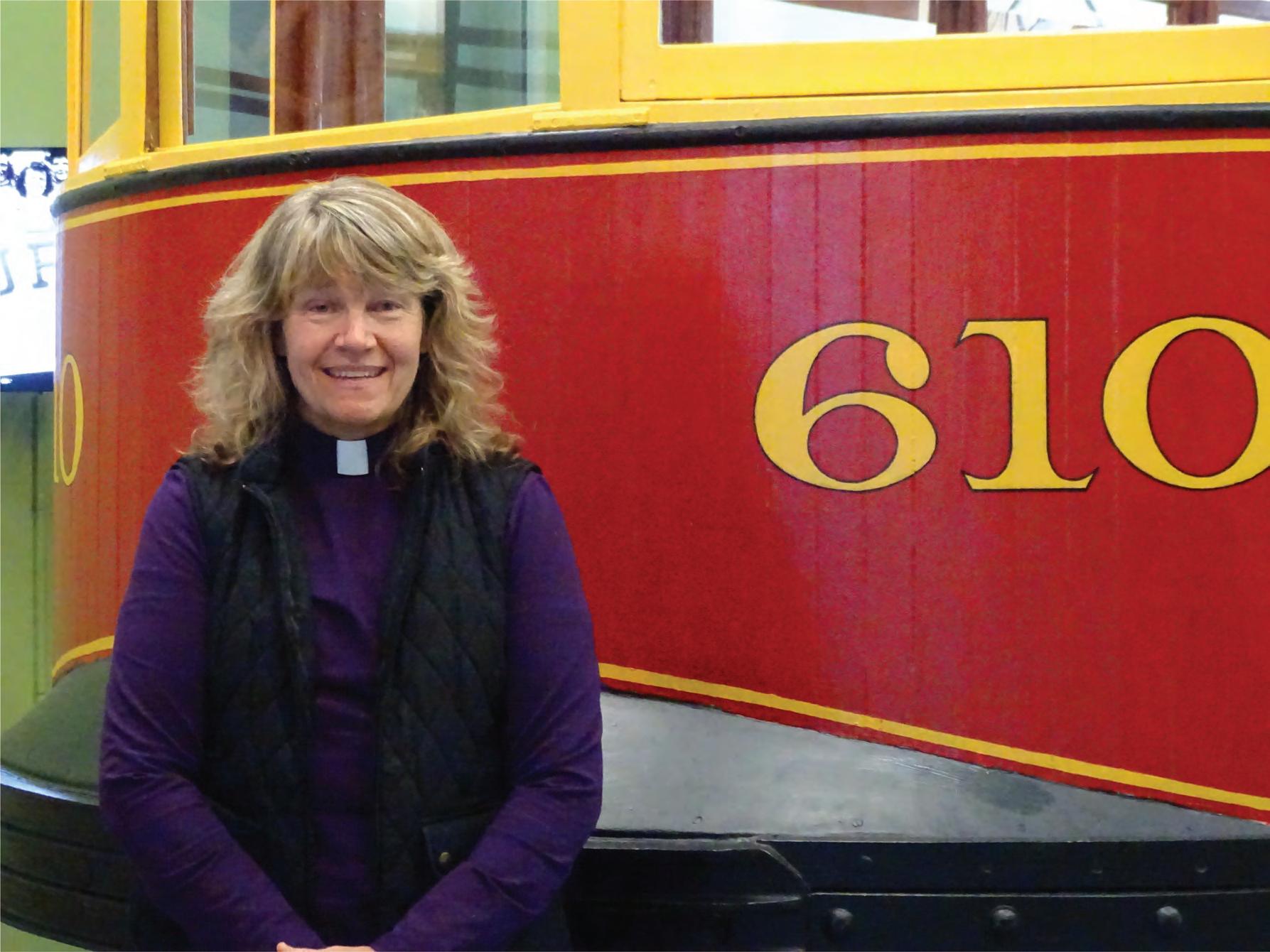
Wright Pastor Margot
is the pastor at Lord of the Hills Lutheran Church in southern Aurora along the border with Centennial. She is the second permanent pastor at the church, and she began in 2016. She was ordained in 1989 and served at churches in South Dakota and Montana before coming to Colorado with her late husband who was also a pastor. Wright explained that the Lord of the Hills Lutheran Church neighbors differing religious institutions. She commented on the complex dynamic created, “Our property borders one of the wards of the Latter-day Saints, and they have invited us to join them in doing a food bank. . . ey have many things similar, but things are also very di erent in some ways. . . Also, an Islamic community, they are purchasing approximately 4.5 acres of our excess property and their intent is to build a community center. . . It has pushed us to enter into a more robust religious dialog. I feel like it also makes us understand more. When we got to hear Iman Jodeh (the rst Muslim lawmaker in the state’s history, elected Nov. 2020) . . . the passion she had about her faith was so inspiring. . . When we were approached about this land sale, we held opportunities for people to come and ask questions . . . It gave a chance to really say, ‘let’s ask harder questions.’. . I am really hoping we can establish some real relationships. ese folks are our neighbors, they live down the street from most of us and yet we don’t know each other. . . I feel like the faith community can start that dialog.”
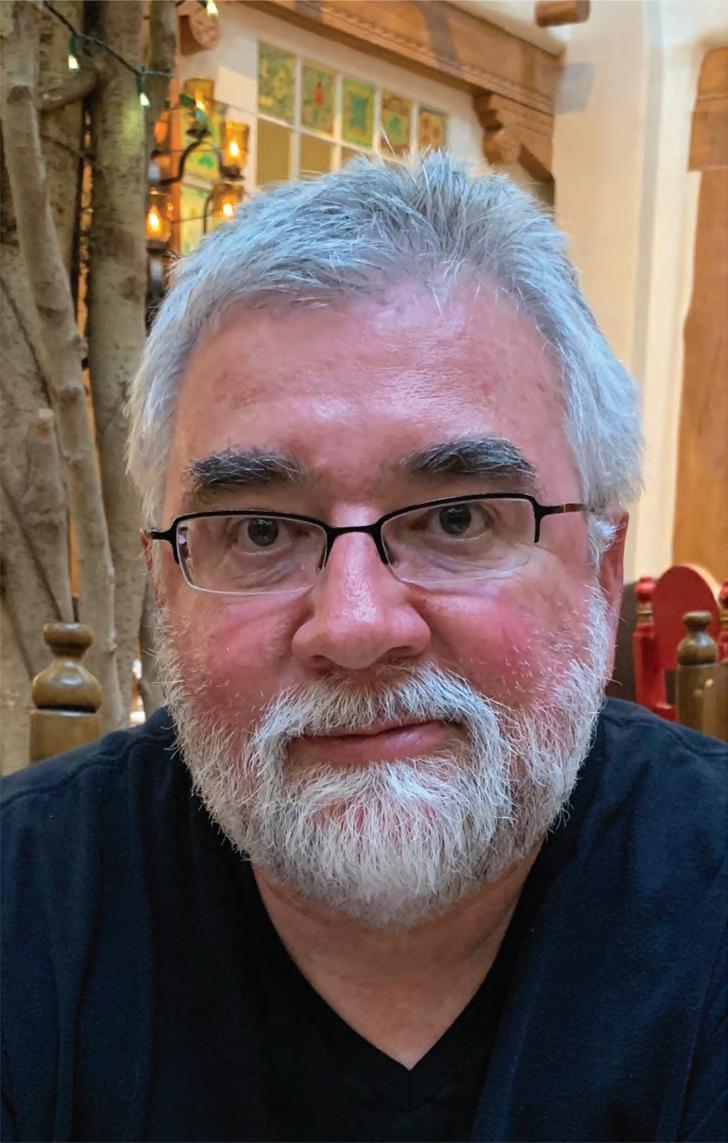
Narucki Marcel
Marcel Narucki, a Lutheran minister and former Catholic monk, was the pastor at St. Matthew Lutheran Church before the church transformed into the nonprofit community center known as the Village Exchange Center. St. Matthew was founded in 1949 in north Aurora, and at its height had more than 300 congregants gather on any given Sunday. By 2018, the aging, mostly white congregation had dwindled and was less reflective of its neighborhood demographics. The Village Exchange Center now serves as a multi-faith space for four Christian congregations, Hindu and Buddhist worship and Jewish and Muslim events. Narucki explained, “Part of our vision is to celebrate religious and cultural diversity. e reason that is a value to us is that as a pastor I recognized very clearly that peoples’ faith is critical to their resilience and their wellbeing. We thought, if we are going to create a community center it had to be a safe space for the expression of faith.” In addition to providing a space for multiple faiths to gather, the Village Exchange Center conducts extensive outreach into Aurora’s communities. The center hosts after-school programs, offers English as a Second Language and citizenship classes and maintains a food pantry for the neighborhood. Narucki emphasized, “I think we absolutely, on so many levels, belong to one another. Our future depends on coming to that realization. . . I want people to see each other. . . By recognizing our diversity in faith, but also our diversity in humanity, lets us know who we are. . . Its critical, diversity around us is a manifestation of what it means to be a human being.”
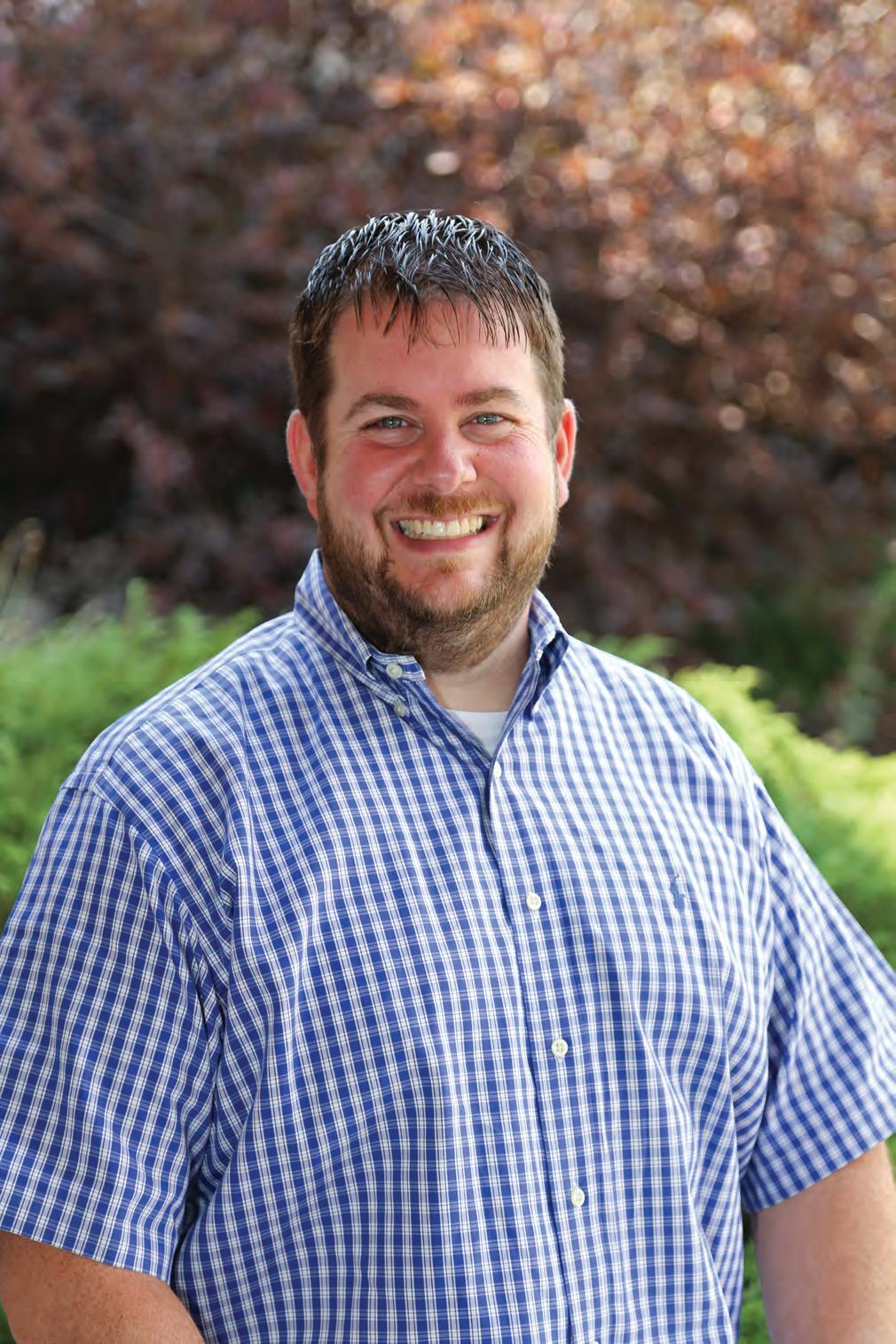
Spence Pastor Mark
is the Lead Pastor at Mississippi Avenue Baptist Church (MABC). Spence emphasized the value of MABC’s multigenerational and diverse
“We have people who represent every generation . . . we have boomers to preschoolers here. . . Every single Sunday we have people from all over the country and from all over the world come to worship. at is one of the great things about Aurora, people come from everywhere . . . and our congregation re ects that. . . You get all these di erent ideas and attitudes towards faith, politics and economics brought together for one purpose, and that’s to worship the Lord.” Spence’s faith was nurtured at a young age growing up in Texas. He described two moments in his life in which solidified his journey to becoming a pastor, the first at a young age of 7 and the second when he was called to his ministry as a young adult. Before earning his master’s degree in Divinity at seminary, he studied history as an undergraduate. He began his professional career by serving in a church in Fort Worth, TX for 11 years before moving to Aurora and joining MABC in July 2016. Spence explained that he encourages his congregation to be passionate about two different things, “Deep roots, and wide branches.” He described this as “First is to help people know God deeper on their own . . . and on the other side of it, is to serve, to love and to share so that more people can understand the love of Jesus.”
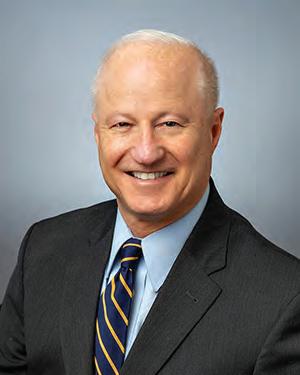
Co man Mayor Mike
Mayor Mike Co man grew up in Aurora, attended Aurora Public Schools and graduated from the University of Colorado under the G.I. Bill. He served a combined 20 years in the Army, the Army Reserve, the U.S. Marine Corps and the Marine Corps Reserve, retiring as a Major in 1994. Starting in 1989, Coffman's political career has spanned two decades, serving in Colorado's State House of Representatives, State Senate and U.S. House of Representatives, in addition to being elected Colorado State Treasurer and Secretary of State. He was elected mayor of Aurora in November 2019. Mayor Coffman spoke about his religious tolerance forged at a young age, “I think back to when I was a young person at the University of Colorado. I studied in India for a little while, there I was exposed to world religions well beyond what I experienced in Aurora at the time. . . I got to know people practicing Buddhism and Hinduism. And when I was in the Middle East in the Marine Corps I worked with a lot of Arab Muslims. rough these interactions I gained a certain respect for all these di erent faiths. I came to a conclusion that there are many paths to spirituality. at embedded in my thinking a religious tolerance. Certainly, there will be fringe elements to every religion that is intolerant and problematic, but as a whole I think these religions are important to society. ey provide a foundation of moral principles that guide one’s life in relationship to others that are unquestionably very important.”
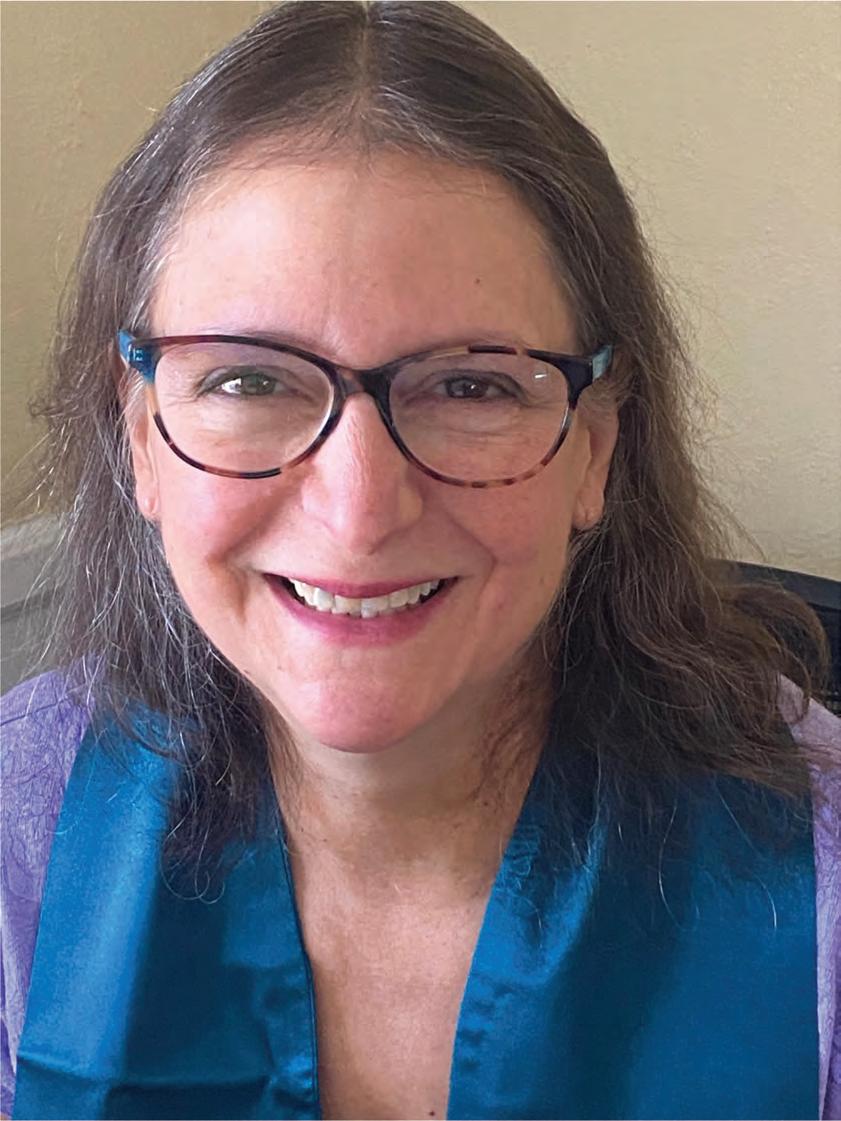
Munroe Reverend Dr. Mimi Kate
Reverend Dr. Mimi Kate Munroe attends St. Stephen's Episcopal Church in the Del Mar neighborhood in Aurora and is also affiliated with several other spiritual groups. Dr. Munroe came to Aurora in 2012 from New York. She explained she was raised atheist and it has been a life-long journey discovering her spirituality. In Colorado, she is a member of the group known as Awaken Life led by a Guru named Sai Maa. Dr. Munroe explained, “I came out to Colorado because I have a Guru named Sai Maa, and she is a luminary in the world of spiritual awakening. . . When I rst met Maa I was in seminary. I had been called to seminary. Which is an interesting part of my journey, too, because it was nothing I ever expected in my life having been an atheist. . . It was after 9/11, when I was living in New York, I had this huge wakeup call I could die at any minute and I realized there was no wasting any minute of this precious life. . . It was an interfaith seminary in which I attended. . . It was at the end of seminary when I met Sai Maa. . . It felt for me, as I imagine it felt like for the early disciples to have met Jesus. It was such a profound experience of being welcomed, loved, held and completely accepted. at it changed the course of my life completely.” Dr. Munroe continued, “I truly am an interfaith minister. I believe there are many paths to divinity . . . we are all spiritual beings. ere are as many paths as there are people. . . We each have to nd our own path. . . Some people are explorers, like myself. ey have to open the doors, peak into the corners and decide what works for them spiritually. . . In my opinion, no one else can tell you who you are, and I hope people are true to themselves. . . I also hope people can always leave the door open to another’s point of view and experience.”
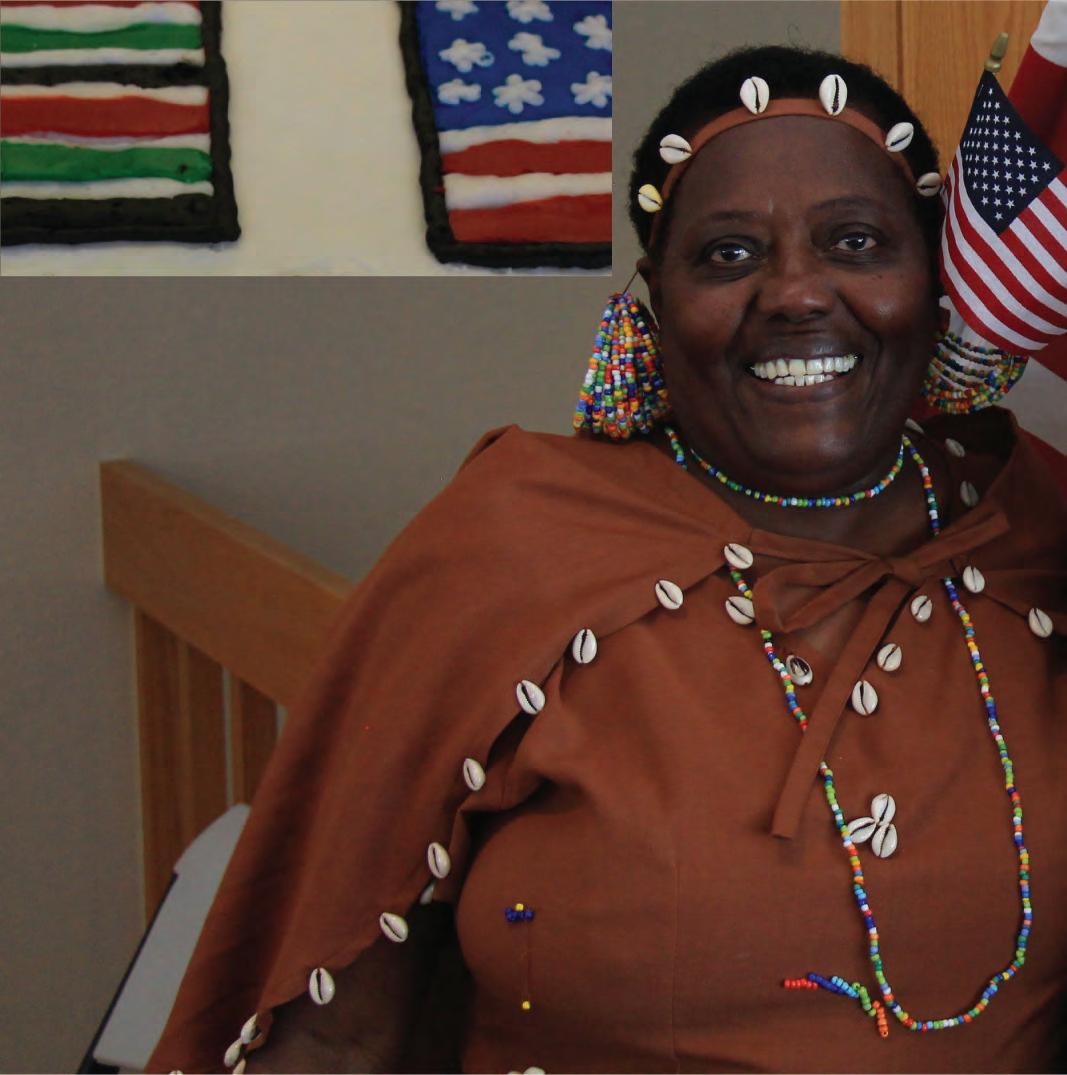
King’and’i Njeri
was born and raised in Kenya. As a child, her father worked as a non-ordained lay reader at the local perish. King’and’i does not identify with a single denomination of Christianity. In Africa, she was raised in an Episcopalian church, and later in life she worshiped as a Methodist. She came to the United States in the 1960s for her education and studied at Westmar University in Le Mars, Iowa. After, she returned to Kenya for several years before coming back to the United States in 2005 to be closer to . Once in Colorado, King’and’i sought out a church and became a member of Mountain View United Church in Aurora for the last 15 years. She explained why she chose her new church, “At point in my life I decided I did not care about denominations. For me, it was important that at the I worshipped, they worship the God of love. . . So, I went there shortly after I moved to Denver. I was rst impressed that it was an ecumenical church that combined three di erent denominations. I also appreciated that it was open and welcoming to all people. I thought, ‘wow, that’s interesting,’ because my experiences at other places had been [that] churches had said they were open to all people, but when you get right down to it – they were only welcoming to people who looked like them. . . e rst thing for me I was impressed by was that there was a minister who was an openly gay man. e minister and his partner were openly accepted, and to me, this was really important.” King’and’i explained that it was during her later life she became increasingly religious. “I began to think about John 3:16 and how God gave his only son. I started to think about what that meant as a parent. I knew, when push comes to shove, I am not sure I would be willing to freely give my son, never mind to die for the whole world, or even sacri ce a little bit. . . So I started to understand that idea of love and what God really did. And I thought, ‘Who the heck am I.’ We are told, whoever believes receives eternal life. I did not have to go to school to understand that.”
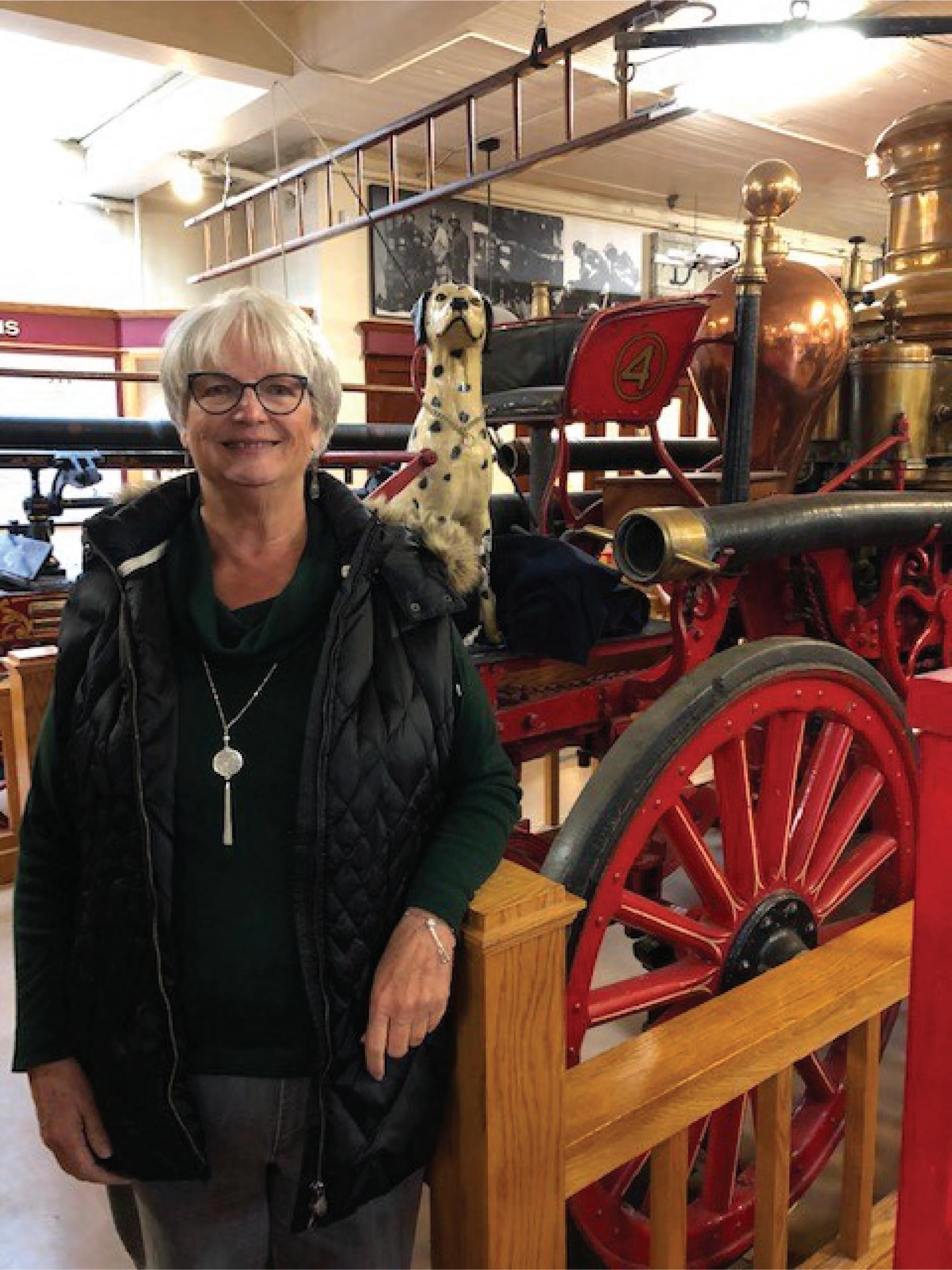
Burke Peggy
is a native of Aurora. Her parents, both World War II veterans, came to Aurora in 1952. Burke was raised Catholic and has been a member of St. Pius X Parish in the Hoffman Heights neighborhood throughout her life. Burke commented on the importance of faith in her upbringing, “I grew up in a family of faith, that is what formed me into who I am and Burke worked for over 20 years as the parish secretary at Our Lady of Loreto Catholic Church in southern Aurora. She explained how she got involved with Our Lady of Loreto Catholic Church, “It started out as a temporary job. I thought to myself, ‘I can do this, I am a practicing Catholic.’ I thought I could do this while I was looking for another job. Soon, one month turned into two, two turned into three, three turned into 20 years. I loved my job there, I really did.” When talking about other faiths, and the importance of faith in peoples’ lives, Burke said, “Everyone is equal as far as I am concerned. . . I think having a strong faith and a strong faith background really develops who people are. ere are people who are highly intelligent, and yet it is their faith behind them that drives them in my opinion.”
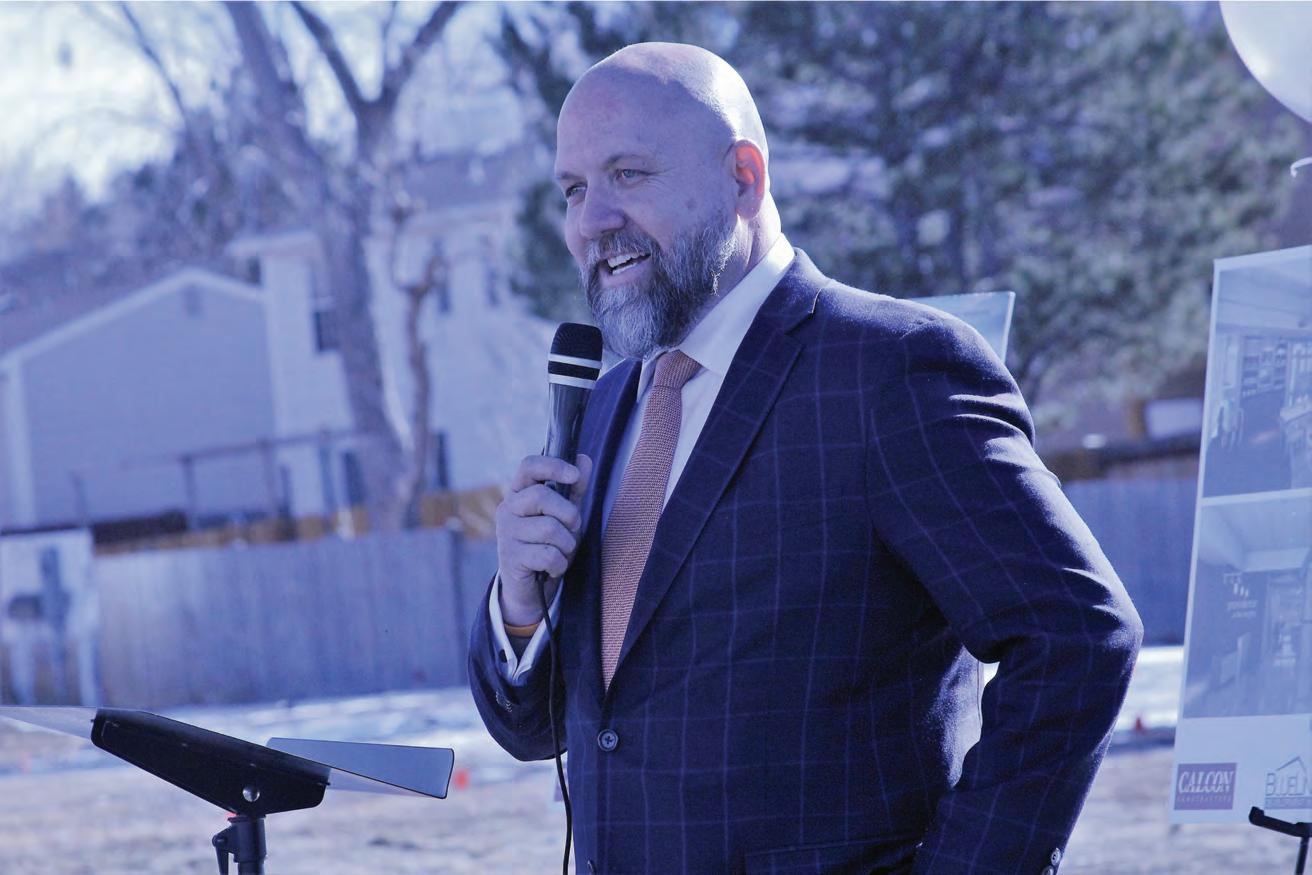
Bloyer Pastor Scott
Scott Bloyer is the founding lead pastor at Elevation Christion Church in Aurora. Bloyer was born and raised in Aurora, graduating from Rangeview High School. After living in various locations around the U.S. throughout his 20s, Bloyer and his wife decided to start a church in their hometown in 2010. Elevation began meeting in Dalton Elementary School and today the church is located along East Alameda Parkway. Bloyer explained when his religious path began, “I was not a person of faith for most of my life . . . not really involved in church at all until my early 20s. I had a bad night and ended up with stitches in my face. . . Just in that moment I felt the need to respond to the love of Christ. I got down on my knees and asked God, ‘Okay, if you’re real, we got to gure this out.’ So, I gave my life to Christ.” Bloyer described Elevation Christian Church’s congregation as, “We are very diverse in age here, very diverse in cultural backgrounds, very diverse in race. I grew up here, and I knew Aurora was a melting pot of community. So, I never wanted to start a church that was just a group of people who looked like me and sounded like me.” When talking about the relationship between his church and its place in the city of Aurora, Bloyer commented, “We believe that the church should be there in the community in good times and bad. Because this is my neighborhood, I have a little more a nity to say, I really want to be a part of how are we going to make things better in our city and our community.”
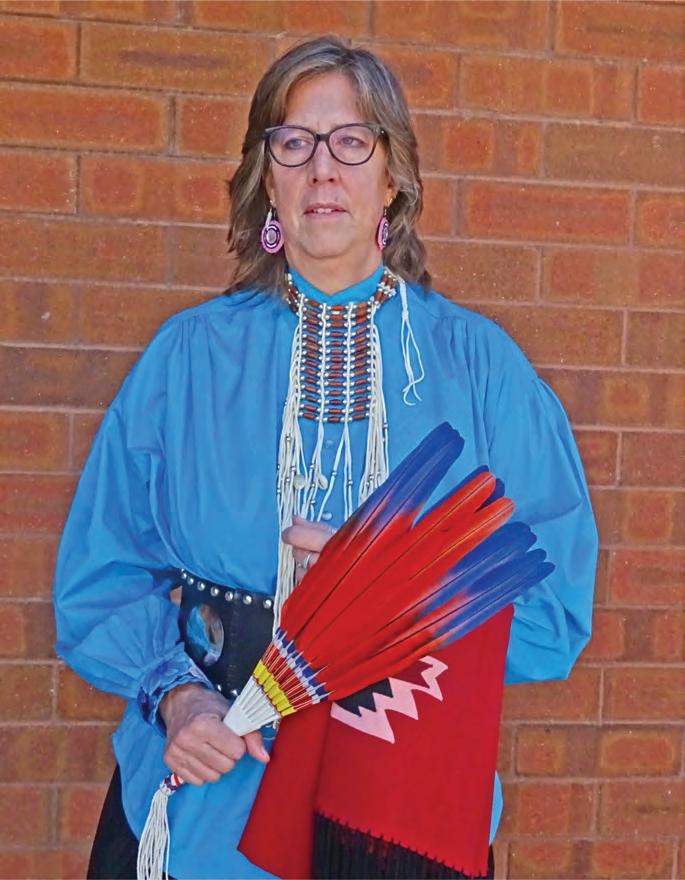
Tsupiluzu Sara Howell,
Sara Howell, her tribal name Tsupiluzu (short woman), is a Colorado native and a Native American from the Pawnee Tribe. Howell grew up in suburban Colorado and went to Ft. Lewis College in Durango, Colo. She also earned a master’s degree in American Indian and Culture from the University of Denver. Like her father, Howell taught in the Denver Public School District, specializing in math and history throughout her 30-year career. She is now retired and focuses primarily on her art. Howell talked about her views and experiences with faith, “I grew up knowing nothing other than being an Indian, and what an Indian was. Faith was not much a part of that because we went to a white church. . . Growing up as an adult and discovering more of the history of Indians, and when I got closer to my culture, I think it has grown into a more personal belief in the spirits and knowing that there is something out there other than you and I. . . All of my ancestors, like my father and his brothers and sisters . . . they were all raised Christian. I know nothing other than Christian traditions. . . It was when I was a teenager, I asked my father, after we stopped going to church, ‘why did we go to church?’ I was told, ‘ at’s what you did, that’s what the community expected of you [as a Native American].’” She continued, “I think when it comes down to it, all faiths have the same idea that there is something other than us human beings, and it makes this whole world go round. If we can’t love that for each other, we will never survive as a people.”
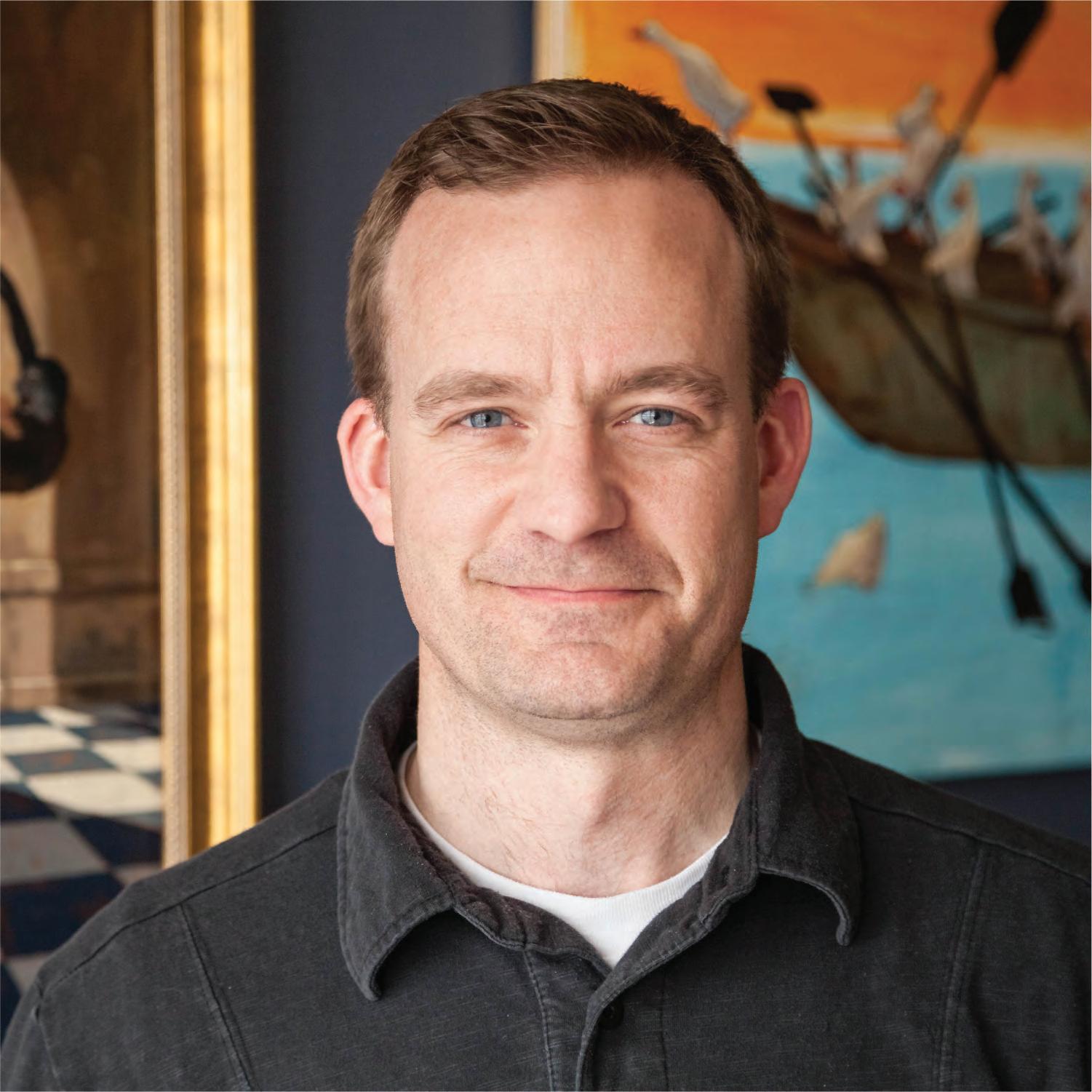
Wake eld, Scott Bishop
Scott Wake eld has served as Bishop in the Seven Hills location of the Church of Jesus Christ of Latter-day Saints (LDS) for the last 4.5 years. Wakefield grew up in Rexburg, Idaho and was baptized at the age of 8 in the LDS church. From 1995 until 1997, Wakefield was called to Portugal for missionary work. Today, Wakefield is the Chair of Illustration at Rocky Mountain College of Art and Design in Lakewood, Colo. As a professional illustrator, he has illustrated secular and religious subjects. Through various publishers he has completed work for the Catholic Church, various Baptist groups and the LDS church. When asked about the relationship between his faith and his sense of community, Wakefield commented, “I feel pretty strongly about the people I attend church with. ey are my brothers and sisters – I see them as family, a secondary church family. . . at’s been the case wherever I have gone . . . there is a lot of comfort and community amongst the congregation because of the faith that we share. ere is a sense of consistency and unity. . . On any given Sunday, you can go to an LDS church wherever in the world, and we are all talking about the same things, we are all studying the same passages in the scripture. is is because the church has structured our curriculum in such a way we are all studying together and teaching the same passages during worship services. . . ere is a lot of community and comfort in that. . . ere is a lot of community developed outside of that too. We are taught to love our neighbors as ourselves. We are taught to reach out and help the poor and those in need, and nd ways to serve people who are less fortunate.”
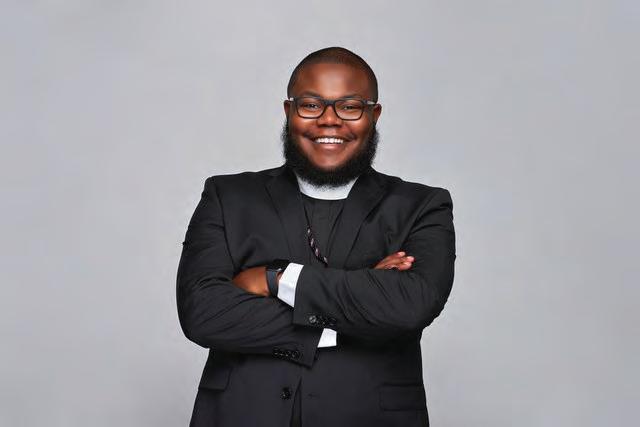
Coburn Sr. Pastor Tyler
Pastor Tyler Coburn Sr. is the lead pastor at Prince of Peace Temple Church of God in Christ in north Aurora. The church was founded by his great grandfather in 1952 in Denver under the name Saints Home, Church of God in Christ. The congregation moved into their current location in 1995 and adopted its current name in 2008 when Coburn became Pastor. Coburn described his church’s congregation by saying, “Our congregation is multifaceted. We have people of di erent faith backgrounds . . . we have people who grew up atheist, Catholic or Baptist here. We have Hispanics, Caucasians, African Americans and Paci c Islanders, really all walks of life. We have people from transitional housing and living on the streets, to people making six gure salaries . . . it’s a unique community here. . . a real broad spectrum of people at our church.” He expanded upon the church’s diversity by stating, “It brings a lot of wisdom. It brings so many di erent ideas to the table . . . It’s phenomenal how you have people who woke up in a homeless shelter and people pulling up in a luxury vehicle having no di erences . . .it’s something essential, that a house of worship can bridge society’s gaps.” Coburn went on to stress the impact his church has on Aurora’s community. “We do a lot of outreach in the community . . . We try to stay engaged with the community around us on a monthly basis. We o er a lot of services from food drives and giving people clothes . . . we o er a mental health class weekly . . . we want to make ourselves a resource to the community. I feel like if you can meet people’s needs naturally, they are more apt to hear what you have to say spiritually.” Coburn wanted museum patrons to know, “Your relationship with God, is what you make it . . . and as you go through things in life, your perspective is what is important . . . I hope people can turn to God and draw strength through Him.”

































